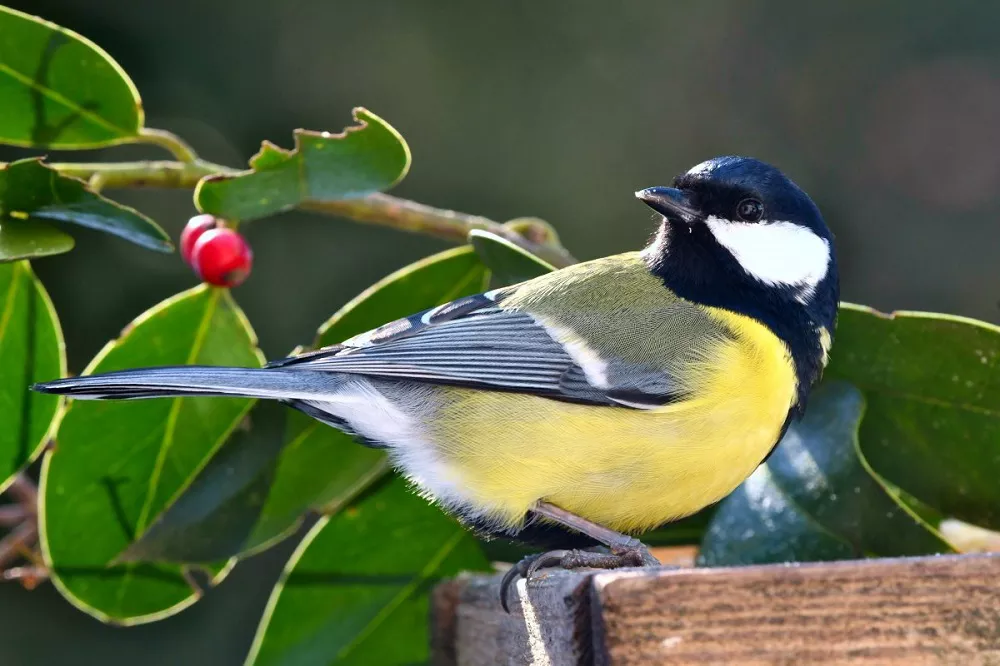Bird feeding is a popular activity enjoyed by many individuals around the world. People delight in attracting different bird species to their gardens and balconies by offering them a variety of food items. While seeds, fruits, and suet are commonly known as bird-friendly foods, there may be some confusion about whether birds can consume raisins. In this article, we will explore the topic of whether birds can eat raisins, considering their nutritional requirements and potential benefits or risks associated with raisin consumption.
Understanding Bird Nutrition
Before delving into the suitability of raisins for birds, it’s essential to understand their nutritional needs. Birds require a well-balanced diet to thrive, just like any other living creature. Their diet primarily consists of proteins, fats, carbohydrates, vitamins, and minerals. Different bird species have varying dietary preferences and adaptations based on their natural habitats and feeding behaviors.
In the wild, birds usually feed on a diverse range of food sources, including insects, seeds, fruits, nectar, and even small vertebrates. This varied diet ensures that they obtain all the necessary nutrients for survival and reproduction. Providing a similar variety of food when feeding birds can help meet their nutritional requirements adequately.
Can Birds Eat Raisins?
There are many different types of wild birds, and each has its own dietary needs. In general, however, most birds can eat raisins safely.
Raisins are a good source of natural sugar and nutrients, and they can be a healthy treat for your feathered friends. Just be sure to offer them in moderation, as too many raisins can cause digestive issues.
What Kind of Birds Can Eat Raisins?
North America is blessed with an abundance of native bird species, and many of them enjoy raisins. The following are just a few examples of wild birds that can safely eat raisins:
- Eastern bluebird
- Northern cardinal
- Gray catbird
- Northern mockingbird
- Orioles
- American robin
- Scarlet tanager
- Brown thrasher
- Wood thrush
- Cedar waxwing
- Red-bellied and Red-headed woodpecker
The Risks of Feeding Raisins to Birds
When it comes to feeding raisins to birds, there are several potential risks to consider:
High Sugar Content: Raisins are naturally sweet due to their high sugar content. Feeding birds foods rich in sugar can lead to obesity, diabetes, and other health issues.
Small Size: Raisins are relatively small, which could pose a choking hazard for some bird species. Larger birds might be able to consume raisins without issues, but smaller birds could struggle to handle and swallow them safely.
Natural Toxins: Grapes and raisins contain natural compounds that can be toxic to some animals, including dogs and cats. While the impact of these compounds on birds is not as well-documented, it’s important to exercise caution.
Unbalanced Diet: Raisins should never become a staple in a bird’s diet. A balanced avian diet primarily consists of high-quality bird pellets, fresh vegetables, fruits, and occasional protein sources.
Feeding Tips and Recommendations
If you decide to include raisins in your bird feeding routine, here are some tips and recommendations to ensure the well-being of your feathered visitors:
Moderation: Raisins should be offered in moderation, preferably as an occasional treat rather than a primary food source. A small handful of raisins can be scattered on feeding trays or mixed with other bird-friendly foods.
Variety: Remember to provide a diverse range of foods to meet the nutritional needs of different bird species. Alongside raisins, offer appropriate bird seeds, nuts, suet, fruits, and insects to promote a balanced diet.
Freshness: Ensure that the raisins are fresh and not spoilt. Avoid offering moldy or rotten raisins, as they can cause health issues for birds.
Water Availability: Always provide a fresh and clean water source alongside the food offerings. Birds need water for drinking and bathing, especially during hot weather.
Observation: Watch the birds’ responses to raisins and monitor their overall health and behavior. If you notice any negative effects or if a particular bird species shows disinterest or discomfort after consuming raisins, it’s best to discontinue offering them.
Conclusion
In conclusion, while birds can eat raisins, caution should be exercised when incorporating them into their diet. Raisins can be a tasty treat for some bird species, but they should not replace essential nutritional components, such as proteins, found in their natural food sources. It is important to remember that each bird species has specific dietary requirements, and a varied diet that mimics their natural feeding patterns will ensure their well-being.


 Facebook
Facebook  Instagram
Instagram  Youtube
Youtube 